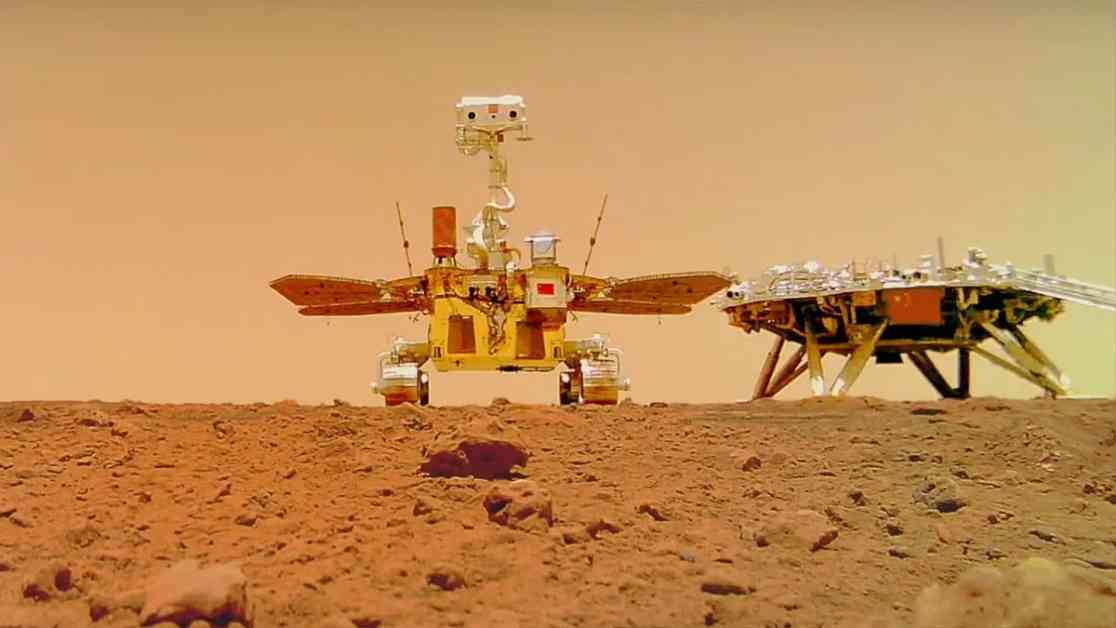Happy Martian New Year! Today is the start of a new year on the Red Planet, which has been counted since 1956. The Zhurong rover from China has made some exciting discoveries that support the theory of an ancient ocean on Mars. The rover landed in Utopia Planitia in 2021 and has traveled about 1.24 miles (2 kilometers) studying the geology of the area.
Scientists have combined data from the rover’s cameras and ground-penetrating radar with satellite data to spot water-related features in the rover’s landing area. These features include crater-like pitted cones, troughs, sediment channels, and mud volcano formations that suggest an ancient coastline. The ocean is believed to have existed around 3.68 billion years ago, based on the composition of surface deposits in the area.
The ocean froze for a relatively short period before drying out, leaving behind the observed coastline. The presence of water on Mars suggests that the planet was once capable of supporting microbial life. Scientists are still trying to understand how Mars lost its water approximately 3 billion years ago.
Recent data from NASA’s Insight lander suggests that some of the water may have disappeared underground. To establish the truth about Mars’ water history, samples from the planet need to be brought back to Earth for detailed analysis. China has advanced its Tianwen 3 Mars sample return mission, aiming to bring Martian surface samples to Earth by 2031.
The joint NASA-European Space Agency Mars Sample Return program is also in progress, but facing challenges due to cost and schedule overruns. SpaceX has proposed a simpler sample return mission using its Starship megarocket. This proposal could potentially bring Martian samples back to Earth faster and more cost-effectively than the current plan.
As we await further discoveries and the return of Martian samples, the mysteries of Mars’ ancient ocean and water history continue to fascinate scientists. The possibility of finding evidence of past life on Mars remains a tantalizing prospect for future exploration missions. Stay tuned for more updates on Mars exploration and the search for signs of life beyond Earth.




